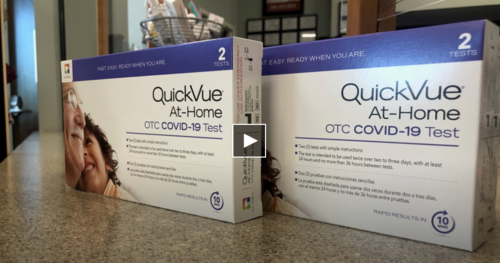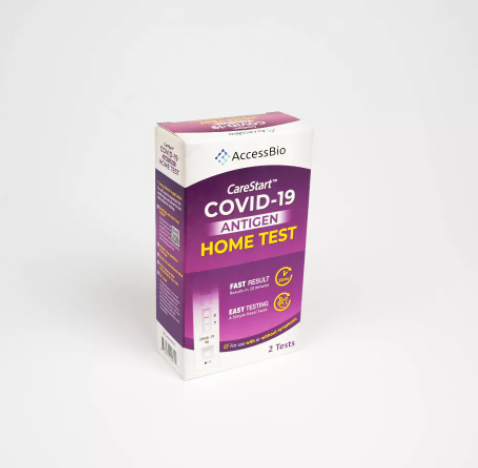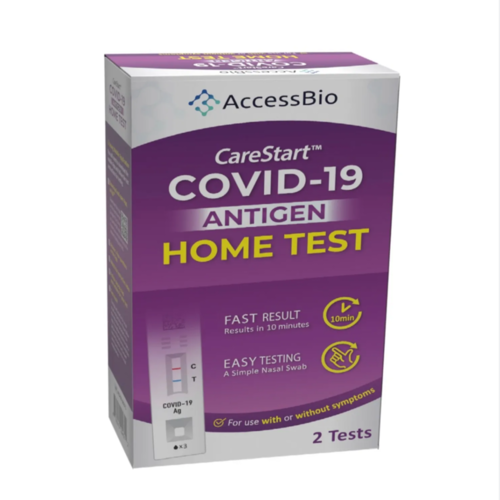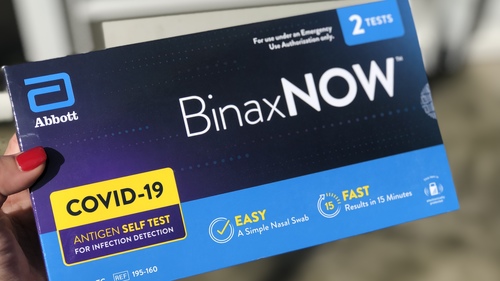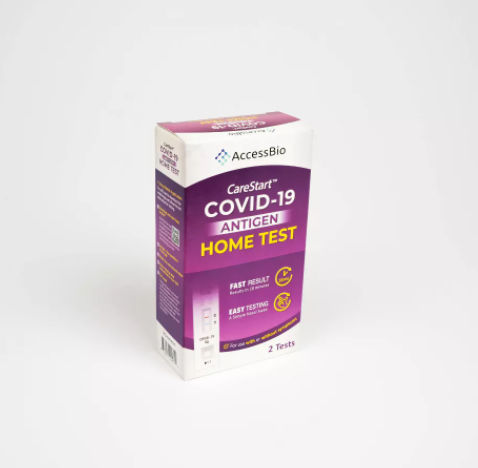
CareStart Covid-19 Antigen Home Test Kit in Canada
Product Details:
CareStart Covid-19 Antigen Home Test Kit in Canada Price And Quantity
- 1.20 - 1.50 USD ($)/Box
- 1.2-1.5 USD ($)/Box
- 1 Box
CareStart Covid-19 Antigen Home Test Kit in Canada Trade Information
- 3 Box Per Day
- 5-15 Days
- Western Europe Australia Eastern Europe Middle East Central America South America Asia North America Africa
- CareStart Covid-19 Antigen Home Test Kit in Canada .FDA EUA CE ISO GMP SFC ETC.
Product Description
CareStart COVID-19 Antigen Home Test - 2 Tests Each
The CareStart COVID-19 Antigen Home Test is a rapid, lateral flow immunoassay intended for the qualitative detection of SARS-CoV-2 nucleocapsid protein antigens from individuals with or without symptoms or other epidemiological reasons to suspect a COVID-19 infection when tested twice over two or three days with at least 24 hours and not more than 48 hours between tests. CareStart Covid-19 Antigen Home Test Kit in Canada This test is authorized for non-prescription home use with self -collected direct anterior nasal (nares) swab samples from individuals aged 14 years or older or adult collected anterior nasal swab samples from individuals aged 2 years or older.
Click for Individual Fact Sheet
Results are for the identification of SARS-CoV-2 nucleocapsid protein antigen. The antigen is generally detectable in anterior nasal swab specimens during the acute phase of infection. Positive results indicate the presence of viral antigens, but clinical correlation with past medical history and other diagnostic information is necessary to determine infection status. Positive results do not rule out bacterial infection or co-infection with other viruses and the agent detected may not be the definite cause of disease. areStart Covid-19 Antigen Home Test Kit in Canada Individuals who test positive with the CareStart COVID-19 Antigen Home Test should self-isolate and seek follow-up care with their physician or healthcare provider as additional testing may be necessary.
Negative results should be treated as presumptive and confirmation with a molecular assay for patient management, may be performed if necessary. Negative results do not rule out SARS- CoV-2 infection, and should not be used as the sole basis for treatment or patient management decisions, including infection control decisions. Negative results should be considered in the context of an individuals recent exposures, history, and the presence of clinical signs and symptoms consistent with COVID-19.
For serial testing programs, additional confirmatory testing with a molecular test for negative results may be necessary, if there is a high likelihood of COVID-19, such as, an individual with a close contact with COVID-19 or with suspected exposure to COVID-19 or in communities with high prevalence of infection. Additional confirmatory testing with a molecular test for positive results may also be necessary, if there is a low likelihood of COVID-19, such as in individuals without known exposures to COVID-19 or residing in communities with low prevalence of infection.
 English
English Spanish
Spanish French
French German
German Italian
Italian Chinese (Simplified)
Chinese (Simplified) Japanese
Japanese Korean
Korean Arabic
Arabic Portuguese
Portuguese